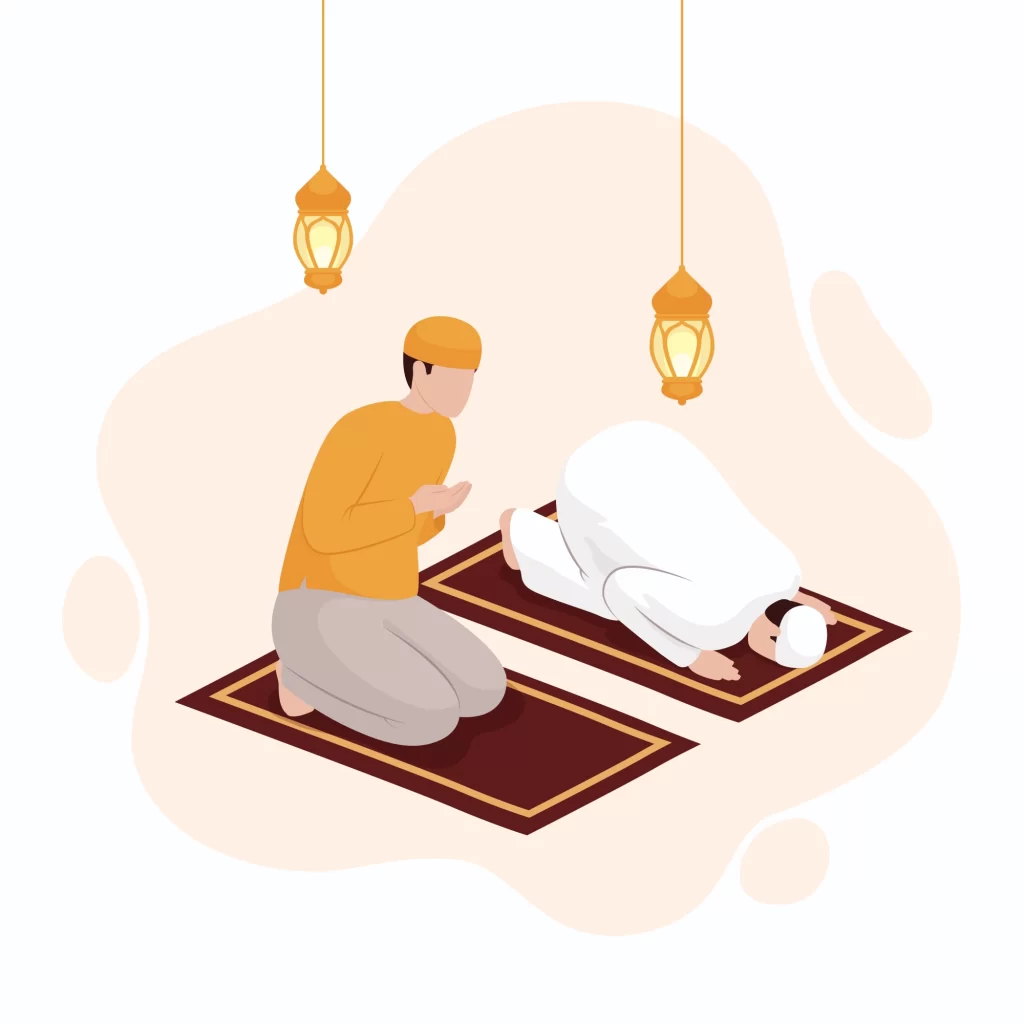
Islam stands as the most expansive and swiftly expanding faith globally. The term “Islam,” rooted in Arabic, embodies the essence of peace, purity, submission, and obedience to the divine will of Almighty God. Translated as “surrender” or “submission” in Arabic, in a religious context, Islam signifies voluntary submission to God. But what are the basic beliefs of Islam?
What are the basic beliefs of Islam?
Muslims universally embrace the five pillars of Islam as detailed in the Quran and Hadith:
Shahada (Faith)
Shahada, the first pillar of Islam, represents the declaration of faith in the singular existence of God (Allah) and His Messenger (peace be upon him), encapsulated in the Profession of Faith (shahada). Central to Islam is the conviction that “There is no god but God, and Muhammad is the Messenger of God.” A person formally embraces Islam by reciting this phrase with conviction.
Salah (Prayer)
The obligatory ritual prayer, Salat, is an integral part of the Muslim faith and is to be observed five times daily throughout one’s lifetime. These prayers occur at specific intervals: dawn, noon, mid-afternoon, sunset, and night. Individuals perform this prayer on their own or participate in mosque sessions led by an imam. Men gather for Friday noon prayer at the mosque, while women, though welcome, are not obligated to attend. Post-payer, the imam delivers a sermon and leads discussions on religious topics.
Zakat (Almsgiving)
Zakat, also known as almsgiving, entails contributing a part of a Muslim’s wealth to support those in need throughout their life. The alms of Zakah involve giving 2.5% of one’s wealth to support the less fortunate. Alms (zakat) align with Islamic law, obliging Muslims to donate a fixed percentage of their income to assist community members. Numerous Muslims fulfill this religious duty by constructing mosques, aiding the poor, and establishing drinking fountains, hospitals, schools, and other institutions.
Sawm (Fasting)
Fasting, known as Sawm, is the practice of abstaining from food and drink during daylight hours in the holy month of Ramadan, the ninth month of the Islamic calendar. Ramadan is a period for self-discipline and gratitude for God’s provisions, including the Qur’an, revealed in this month. Through temporary deprivation, fasting Muslims share the experience of hunger and thirst with the needy, reinforcing the religious duty to assist those less fortunate.
Hajj (Pilgrimage)
Hajj, or pilgrimage, is a fundamental practice for Muslims, requiring at least one visit to Mecca in their lifetime. The Ka’bah, built by Ibrahim and later restored by Muhammad for worshipping Allah, holds immense sacred significance. The pilgrimage involves circling the Ka’ba in Mecca’s Haram Mosque, facing its direction (qibla) during prayers. Muslims worldwide gather at the Ka’ba between the eighth and 13th days of the final month of the Islamic calendar.
What are the six pillars of Iman (faith) in Islam?
In relation to the basic beliefs of Islam, Islamic faith is built upon six pillars, as follows:
- Faith in the oneness of God (Allah)! Muslims build the foundation of their faith upon their belief in Allah.
- Faith in the existence of angels! Angels belong to the realm of the unseen and were created to unconditionally obey the commands of Allah, never violating His laws or directives.
- Faith in the holy books! including the Torah (revealed to Moses), the Bible (revealed to Jesus), and the Qur’an (revealed to Muhammad),
- Faith in all the prophets sent by God! such as Noah, Abraham, Moses, Jesus, and Muhammad.
- Faith in the Day of Judgment and an afterlife! where good deeds lead to closeness to God.
- Faith in divine decree means recognizing God’s omnipotence while granting humans the freedom to choose between good and bad! with ultimate accountability for their actions.
For more, see Why Is Islam Growing So Fast?
